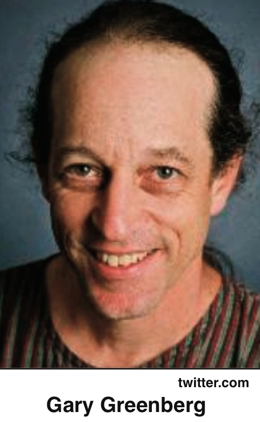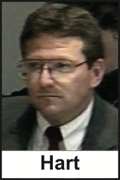Rascals case in brief
In the beginning, in 1989, more than 90 children at the Little Rascals Day Care Center in Edenton, North Carolina, accused a total of 20 adults with 429 instances of sexual abuse over a three-year period. It may have all begun with one parent’s complaint about punishment given her child.
Among the alleged perpetrators: the sheriff and mayor. But prosecutors would charge only Robin Byrum, Darlene Harris, Elizabeth “Betsy” Kelly, Robert “Bob” Kelly, Willard Scott Privott, Shelley Stone and Dawn Wilson – the Edenton 7.
Along with sodomy and beatings, allegations included a baby killed with a handgun, a child being hung upside down from a tree and being set on fire and countless other fantastic incidents involving spaceships, hot air balloons, pirate ships and trained sharks.
By the time prosecutors dropped the last charges in 1997, Little Rascals had become North Carolina’s longest and most costly criminal trial. Prosecutors kept defendants jailed in hopes at least one would turn against their supposed co-conspirators. Remarkably, none did. Another shameful record: Five defendants had to wait longer to face their accusers in court than anyone else in North Carolina history.
Between 1991 and 1997, Ofra Bikel produced three extraordinary episodes on the Little Rascals case for the PBS series “Frontline.” Although “Innocence Lost” did not deter prosecutors, it exposed their tactics and fostered nationwide skepticism and dismay.
With each passing year, the absurdity of the Little Rascals charges has become more obvious. But no admission of error has ever come from prosecutors, police, interviewers or parents. This site is devoted to the issues raised by this case.
On Facebook
Click for earlier Facebook posts archived on this site
Click to go to
Today’s random selection from the Little Rascals Day Care archives….
Click for earlier Facebook posts archived on this site
Click to go to
Today’s random selection from the Little Rascals Day Care archives….
How hard it was to say, ‘Boy, was I wrong’
 Aug. 10, 2012
Aug. 10, 2012
Carol Tavris:
“After the McMartin trial in 1986, I wrote an article for the Los Angeles Times about research that had been done on how to interview children in sex abuse cases. Evidence at the time suggested that sometimes you have to ask children leading questions or they will not tell you they have been molested.
“For example, if you interviewed a child after a genital examination and you asked her just to tell what the doctor did, almost no child would volunteer that the doctor touched her genitals. But if you asked a leading question, such as, ‘The doctor touched your private parts, didn’t he?’ the children would say ‘yes.’ The L.A. Times headlined this article, ‘Do Children Lie? Not About This.’
“Of course that was preposterous. Of course children lie ‘about this’ and lots of other things. But my essay, although based on research at the time, helped support the child advocates who were on a rampage against child molesters, and who were running around saying ‘children never lie’ and selling bumper stickers that said ‘Believe the Children.’’ I didn’t foresee that prosecutors and therapists would use these same studies to coerce the hell out of kids.
“When I think of my own embarrassment about that little article, and how hard it was to say, ‘Boy, was I wrong about that research,’ I realize how difficult it must be for all those ‘believe the children’ people to acknowledge they were wrong, too. In fact, most of them haven’t. They are more entrenched than ever in their pernicious beliefs.”
– From “The Measure of a Woman: An Interview with Social Scientist Carol Tavris”
in Skeptic magazine (Feb. 9, 2011)
Prosecutors went out of way to inflame public
April 15, 2013
This from Detroit reader P. Karr:
“Raised by a mom who survived the Blitz of London, I was taught that fascism often appears at the hands of lawmakers and is then carried forth by the public at large – said public believing whatever convenient lie is crammed down its throat….
“The Edenton prosecutors’ refusal to apply reason was frightening. But not near as frightening as their hubris, their moral flogging of the accused and their trotting them out in order to inflame the public. They may as well have sewn gold stars on the shirts of the Edenton Seven….
“I wonder if it ever occurs to the prosecutors that a refusal to apologize – indeed, to even question if they may have been wrong – is the hallmark of the sociopath.
“Something tells me not.”
Richard Kluft, ‘advocate of moderation’?
 Feb. 28, 2014
Feb. 28, 2014
As noted by Gary Greenberg, Richard Noll’s disappeared history of psychiatry and satanic ritual abuse “singles out two psychiatrists – Bennett Braun and Richard Kluft – who were instrumental in giving legitimacy to the SRA accounts. They helped change the DSM to make Multiple Personality Disorder (thought to be caused by the abuse) seem more common, they started the International Society for the Study of Multiple Personality and Dissociation, and they founded a journal called Dissociation….”
If the SRA era was psychiatry’s Wild West, then Braun and Kluft were… who? Butch and Sundance? Or Frank and Jesse?
In “Rewriting the Soul: Multiple Personality and the Sciences of Memory” (1995) philosopher Ian Hacking pointed out an editorial in Dissociation in which Kluft “pleaded for moderation, but… acknowledged that powerful emotions were at work. He also raised the stakes by printing a comparison that I find rather odious. He noted that one party refers to Nazis and the Holocaust, asking, ‘Should he or she be silent, emulating the “good Germans” who did not speak out about the atrocities in their midst, and by his or her silence become a facilitator?’”
Despite such overheated comparisons, and his ludicrous estimates of an epidemic of “multiples,” Kluft at least claimed “moderation” – not so Braun, whose excesses in patient treatment led to suspension of his Illinois medical license, closure of his hospital MPD unit and at least four out-of-court settlements, one for $10.6 million.
Today he practices in obscurity, while Kluft concentrates on stifling publication of incriminating journal articles.
Bill Hart used day-care moms as dating pool
 Aug. 6, 2012
Aug. 6, 2012
Let’s say you were a special deputy attorney general called in from Raleigh to help prosecute the Little Rascals case. Now imagine: What would be the most inappropriate, the most ethically questionable way you could possibly spend your spare time in Edenton? How about starting to date the mother of one of the alleged victims?
Yes, that’s exactly what Bill Hart chose to do. He and Patricia A. Kephart had been involved for months even before Bob Kelly’s trial began.
Readers of this blog won’t be surprised to learn that Hart denied any impropriety and blamed the defense for trying “to divert attention from the case.”
But Rich Rosen, professor of criminal procedure at the UNC Chapel Hill School of Law, told the News & Observer of Raleigh (Dec. 20, 1991) that “It certainly raises questions in my mind. A prosecutor is not supposed to have any personal involvement or interest in the case.”
One question raised in my own mind: Unlikely, yes, but what if Hart had experienced a pang of doubt about the validity of the prosecution’s case? Would he have been able to admit that to his girlfriend (much less to his fellow prosecutors)?
At the conclusion of the state’s case, prosecutors dropped charges related to Kephart’s daughter. Hart and Kephart later married.











0 CommentsComment on Facebook